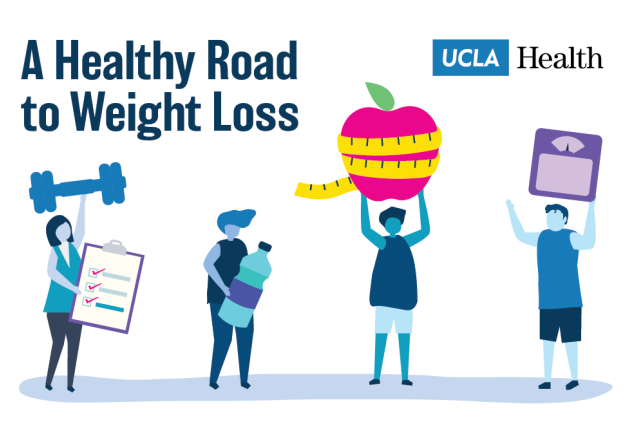You’ve committed to start your weight-loss journey and have set your target. What is the next step?
Finding the right people to help you along the way.
One of the biggest missteps people make when setting out to lose weight is doing so without adequate support.
Identify your support team
Before finding a trainer or a dietitian, it is important to determine who your peer support group is, said , general manager of UCLA Health Sports Performance powered by Exos. These people will be important in holding you accountable.
You will want to figure out who is going to provide a positive effect alongside your journey," Mo said. "Who among your friends or family is going to be there to push you when it gets challenging?"
Mo advised it is a good idea to share your goals with your friends, family and colleagues and let them know what they can do to help you along the way. Cheering you on, joining a program with you or having healthy meals together are a few ways your 'team' can assist you in your journey.
If you want to keep your journey private with those close to you, you can also join interest groups, community organizations, or you can frequent health-focused online chat rooms.

Should I hire a coach, a trainer, or attend group exercise classes?
It is important to seek out experts who can properly train you to perform effective exercises and educate you about nutrition.
"Finding the right expert starts with identifying what kind of environment you thrive in and what barriers you are dealing with," Mo said.
“If someone is an extrovert, then they may like joining a fitness class where there are other like-minded people who can push them,” Mo said. “Some people may not enjoy a group setting or may have specific needs, such as following a pregnancy or recovering from an injury. They may need a personal trainer or an interest group that meets those needs.”
When choosing a trainer, it is important to select one with the proper credentials.
“If you’re looking for a good coach or trainer, one of the best qualifications is a NSCA (National Strength and Conditioning Association)-certified strength and conditioning coach,” Mo said.
But even if someone has the right certifications, “it doesn’t always mean they’re the best person for you,” said Mo. “Find a coach who can get you motivated and keep you going. Most fitness centers offer a trial period that gives you the ability to figure out if this is something you can enjoy long-term.”
Do I need a dietitian or a nutritionist? What’s the difference?
The food you eat during your weight-loss journey is just as important as exercise, if not more. Finding an expert on nutrition can be beneficial, but is not always easy. Understanding the difference between a dietitian and a nutritionist can help to clarify your choice.
Dietitians are experts in nutrition science and focus on diet and its effect on overall health. They have a bachelor’s degree from an accredited institution with coursework approved by the Academy of Nutrition and Dietetics and are qualified to diagnose eating disorders and customize nutrition plans. Look for the letters RD (registered dietitian) or RDN (registered dietitian nutritionist) after their names to ensure you are seeking care from a dietitian.
Nutritionists are not regulated like dietitians, and while they can help people develop healthier eating habits, they are not qualified to diagnose and treat illnesses. They can be recognized by the letters CNS (certified nutrition specialist) or CBNS (certified board nutrition specialist).
“If you are struggling when it comes to consistently eating healthy meals, or you need guidance to pick nutritious snacks that will help support your weight-loss journey, then choosing a dietitian is a great place to start,” said Mo.
Learn more about choosing the right trainer and nutritionist for you. Reach out to your to discuss weight management.



